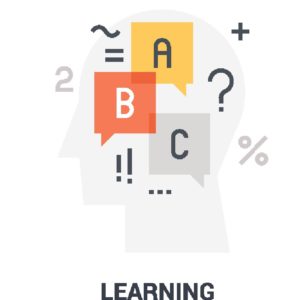
This is the first in a series of posts where I publish my answers to questions I have been asked by students. If you have a wellbeing related question for me, send me an email at gareth.furber@flinders.edu.au – Note, if you are in crisis, contact Health, Counselling and Disability Services during office hours or Lifeline out of office hours.
Recently I fielded some questions from some 3rd year students on the topic of resilience and wellbeing. The students were invited to submit written questions, which I answered also via writing.
The questions were in response to an 8-page document I wrote them on the different ways they could build resilience: look after physical wellbeing (sleep, diet, physical activity), look after mental wellbeing, stay cognitively active, build positive emotions, maximise your learning, establish good financial habits, and build and maintain social supports.
Not surprisingly, many of the questions students asked centred around the idea of “how do I fit it all in?”. They pointed to hectic study and work schedules, and the difficulty of adding health and wellbeing activities to that schedule.
“Living a busy life it sometimes isn’t achievable to maintain a balance between diet, physical activity and sleep. What would you suggest to be the most important, i.e. What should I prioritise?”
“Due to time constraints I wouldn’t be able to do physical activity and 7 hours sleep which one is more important and how should I balance this?”
“How does one prioritize between enhancing their social life and the disciplines of work, revision and homework?”
“…..your list of things to do in order to improve appears to be incredibly time consuming, which when having a full time job would be very hard to include. What advice would you give someone who may not be able to fit it all in?”
In this first of what will be a regular “Ask Dr G” series, I tackle this broad question.
Answer
This is a really good question and it forced me to reflect both on my time as a student, but also how good I am at being ‘healthy’ nowadays.
If I am honest and think back to when I was a university student, I paid little attention to whether or not my life was ‘well-balanced’.
It was definitely more the result of good fortune, than good planning that it was. I worked part time, and my job was quite physical. I rode my bike because I didn’t always have access to a car. My diet was ok, but not great. I slept ok. I studied hard, but back then you really had to go to lectures and tutorials in person, because supplementary materials were not easily available and you had to spend lots of time in library accessing articles. My social life was my band, and my girlfriend. I was studying psychology, so I was constantly learning about mental health and behaviour.
The truth is for many students nowadays, the pressures of work and study leave little mental energy or time to consider their health and wellbeing strategy.
The problem is, the “i’m too busy” issue can become a habit, that gets harder to break the more it is used. Being ‘busy’ doesn’t really go away as you get older, especially if you subscribe the modern Western lifestyle of trying to do and experience everything.
Also the ‘I’m too busy” mindset neglects the fact that health/mental health is not really an optional extra that you can + add to your life if you feel like it. Ask anyone who struggles with a chronic illness or disability how important health is to their work or their study, and you’ll soon realise that health/mental health plays a massive role in how well you can work, how well you can study.
Paying attention to your health/mental health is not a selfish decision. When you are young and healthy, it is the equivalent of putting savings aside in a bank account. It is an investment in your future self. It is an investment in your long-term productivity. It is an investment in your future value and worth to the people you care about.
So I encourage students to use this phase of life to practice integrating being healthy, alongside the hectic demands of work and study. You won’t get it perfect, but you’ll learn valuable skills you can apply over the rest of your life. Pick just one area of health and see if you can make positive changes. If you stuff up, don’t worry, just keep trying. It may sound trite, but making significant changes to our lifestyle is hard (have you ever met someone trying to quit smoking?).
If I were to pick the health areas to focus on first, it would probably be sleep and diet. Sleep has such strong connections to mental and physical health and learning, that it feels like a no-brainer. Diet similarly is strongly connected to physical and mental health. It’s the fuel you are running on.
As a starting point for sleep – aim to get 7-9 hours a night, and have a consistent wake up time. For more information – https://www.sleephealthfoundation.org.au/
As a starting point for diet – https://www.eatforhealth.gov.au/guidelines. Try not to get wrapped up in the endless and confusing public debate about which diets are best.
Consult your GP if these don’t seem to work ok for you. And don’t be ashamed if they don’t. There are a range of manageable sleep and nutrition disorders that require people to get additional help before achieving success.

I also want to address the inherent concept of there being a trade-off existing between work/study and other aspects of life (e.g. physical activity, social life).
The concept of work-life balance implies a system whereby you trade off time in one, for time in the other. 1 hour less work = 1 hour more life. I’m not sure this is the best way to look at the issue.
Even in the case of sleep, where there is a more obvious trade-off – 1 hour of extra sleep means 1 hour less of work, the truth is more subtle. That 1 extra hour of sleep per night can translate into better work and learning ability, making your more efficient during the work/study day. That investment in sleep pays dividends in your capacity to work.
In the case of social life, look for social opportunities within your area of study/work. During my PhD, I started a discussion group with my psychology peers, to enhance our learning in areas not covered in our courses. Our events were very social, but also closely intertwined with the career choice we had made.
In the case of physical activity, look at how you move between your various commitments. Can you ride a bike? Can you get off a stop earlier on the bus and walk. Can you take the stairs instead of the life. Make physical activity incidental to your day.
And if you do use public transport, this is clearly a great opportunity to listen to recorded lectures.

Finally I want to address the concept of evidence-based learning. I was never taught how to learn. I was just lucky that whatever strategies I picked up during primary and high school seemed effective enough to mean I was a decent learner at university.
Is it possible you might be able to learn faster and more effectively if you use some evidence-based learning principles? – https://www.slrc.org.au/resources/pen-principles/
Some of these techniques are for teachers, but some you can start using right now – e.g. spaced out practice versus cramming – https://www.slrc.org.au/pen-4-spacing-practice-enhances-memory/
Don’t assume that the time you have set aside for your studies can’t be used more effectively and efficiently. In this context consider the Student Learning Centre as another resource you can use to get better at study.
In closing, being a student is a period of intense learning. It includes late nights, strange schedules, and being overwhelmed with work.
It is actually one of the best periods of your life to practice getting the right synthesis of health/wellbeing and study/work/productivity. The nature of how these areas of life are combined will be different for each individual. I’ve provided what I think are some good starting points, but it is up to each of you to find the right methods for you.
Your future self will be very thankful that you made those efforts.
Do you have a health and wellbeing question?
Submit it via email – gareth.furber@flinders.edu.au
Some questions will be published on this blog, but I do not include any identifying information about the person asking the question.
Disclaimer:
I am a psychologist by trade. Questions relating to mental health, wellbeing, and behaviour change are the ones I am most qualified to answer. In the case of questions around other health areas (e.g. diet, physical activity), I will attempt to locate published evidence, or consult an expert in the area, in order to answer your question or at least give you a good starting point.
Please view all answers as general advice and a potential starting point for you to find the right answer for you. The old advice to “talk to your GP” still applies. If you are struggling with a health or mental health issue, always seek out individualised advice, as there are many factors that need to be considered before giving someone specific medical advice.
Students can access free health services within the university – http://flinders.edu.au/current-students/healthandcounselling/healthandcounselling_home.cfm

